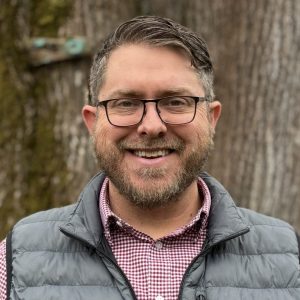Ambition and contentment seem like incompatible tensions in character development. Phrases like get ahead, do your best, make something of yourself, and pursue excellence are cultural mandates describing ambition. Even the Bible affirms ambition with encouragement to maximize our gifts, commit to global impact, and aspire to leadership roles (1 Tim. 3:1).
In contrast, one prominent biblical leader wrote he had “learned the secret of being content” (Phil. 4:12). For me, the verb would be learning, not learned. For most of us, learning to be content—balanced with appropriate ambition—is a lifelong process. Contentment is a spiritual discipline we are learning, not a state of being we achieve.
Heeding two cautions and implementing four steps are helping me learn contentment. These cautions and steps have emerged from a lifetime of mulling how to channel my ambition appropriately—both personally and professionally—without being consumed by it.
The first caution is making sure ambition is driven by right motives. Those motives include expressing love for God and bringing glory to God. They also include showing love to others and blessing others with my achievements. These cautions emerge from the two great commandments—love God and serve others (Matt. 22:37-39).
The second caution is rejecting the lie contentment comes from gaining possessions, position, or power. Ambition producing more never results in contentment. Pursuing contentment this way is a treadmill to nowhere. This caution is rooted in Jesus’ teaching we find life when we lose it; we gain when we give (Matt. 16:25).
After heeding these cautions, several steps—practices of spiritual discipline and discernment—help reinforce contentment.
Step one: focus on God and others as the source of everything you achieve. Years ago a speaker said, “You’re a product of what God and others have done for you.” I have spent decades unsuccessfully trying to prove that statement is wrong. I can’t do it. My life really is more received than achieved, and that facilitates humility and contentment.
Step two: focus on the blessings you have, instead of comparing negatively to what others have. We tend to compare our shortcomings or deficiencies to the strengths and assets of others, rather than to people who have less than we do. That always leads to frustration instead of appreciation and contentment with what we have.
Step three: focus on what’s really important, not what the culture tells you is important. Only the Bible and people last forever. Nothing else. When your ambition drives you to pursue temporal things with reckless abandon, you will be disappointed. Focus instead on what really matters for eternity.
Step four: focus on achieving more as a result of experiencing God’s love, not in order to earn it. This relieves pressure to perform. Your achievements become expressions of worship to God who loves you, not duties you perform to gain approval from a harsh taskmaster.
During this Thanksgiving week, spend some time reflecting on changes you can make to facilitate contentment. It’s a spiritual discipline you can learn.
Read More

Comfort Twice Over
When we provide comfort to fellow believers, we are the means by which God has chosen to provide his comfort.

Inheritance & Glory: Our Vocation
For believers, while heaven may seem long away, our eternal inheritance is already available to us in the here and now.
Listen
Brian Borgman
On this episode of The Jonathan Edwards Center Podcast, Dr. Chris Woznicki interviews Dr. Brian Borgman regarding his book, Jonathan Edwards on Genesis. They discuss Edwards as an exegete, as an interpreter of scripture, specifically looking at Genes

The Dents
Tyler sits down with longtime missionaries and retired Gateway faculty, Don and Anne Dent. The Dents served with the IMB for over 30 years and most recently at Gateway Seminary. In this episode, they reflect on their past experiences from working in the mission field

Watch

Jonathan Edwards and the Asbury Revival
Chris Chun and Chris Woznicki discuss the signs of true revival, signs of the work of the Holy Spirit, and why it is important to critically assess the characteristics of revival in a spirit of charity.

Jonathan Edwards and the Baptists | Douglas Sweeney, Nathan Finn and Chris Chun
Dr. Douglas Sweeney and Dr. Nathan Finn joined Dr. Chris Chun for a panel discussion on Jonathan Edwards, recorded live at the SBC Annual Meeting in Anaheim.




